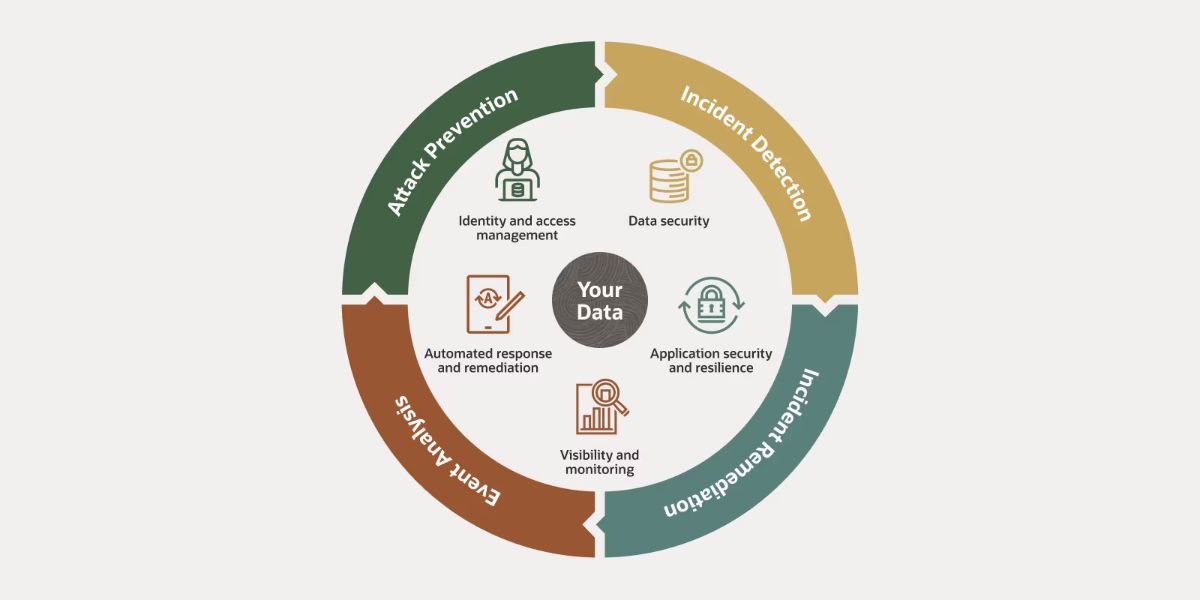
In the dynamic landscape of web hosting, securing your Standard VPS infrastructure is not just a choice; it’s a necessity. As the digital realm expands, so do the threats that loom over your virtual presence. In this comprehensive guide, we delve into the proactive approach of Zero Trust Security, redefining the defense mechanisms for your VPS hosting.
Understanding the Zero Trust Paradigm
Embracing Skepticism in a Digital World
In an era where cyber threats are relentless, the concept of Zero Trust challenges the traditional security model. It operates on the principle of trust nothing, verify everything. In the realm of Standard VPS hosting, this means rethinking how we approach network security, assuming that no entity, whether internal or external, is trustworthy by default.
The Evolution of Security Landscape
Delving into the historical context of security, we witness the evolution from perimeter-based defenses to a more holistic, user-centric approach. Zero Trust aligns with this evolution, focusing on continuous verification and strict access controls, making it the paradigm of choice for safeguarding VPS infrastructures.
Implementing Zero Trust in Standard VPS
Micro-Segmentation: Fortifying Your Digital Boundaries
Micro-segmentation is a key tenet of Zero Trust. By dividing your VPS network into smaller segments, each with its unique access controls, you reduce the attack surface. This proactive measure significantly mitigates the risks associated with lateral movement within your infrastructure.
Continuous Authentication: A Shield Against Unauthorized Access
In the realm of VPS hosting, static authentication measures are no longer sufficient. Zero Trust recommends continuous authentication, ensuring that access is re-verified at regular intervals. This dynamic approach safeguards against unauthorized access attempts, providing an additional layer of defense.
Why Standard VPS and Zero Trust Are Perfect Allies
Tailoring Security Measures to VPS Specifics
Unlike one-size-fits-all security approaches, Zero Trust allows for customization, adapting security measures to the unique characteristics of Standard VPS hosting. This tailored approach ensures that your security protocols align seamlessly with the dynamic nature of VPS infrastructures.
Real-time Threat Intelligence Integration
Zero Trust isn’t just about building digital walls; it’s about staying vigilant. By integrating real-time threat intelligence feeds, your Standard VPS infrastructure becomes adept at identifying and thwarting emerging threats promptly.
Zero Trust in Action: Case Studies
Unraveling Success Stories
Explore real-world scenarios where organizations fortified their VPS hosting with the Zero Trust model. These case studies showcase tangible results and highlight the adaptability of Zero Trust in diverse hosting environments.
Final Words: A Secure Tomorrow Starts Today
Safeguarding your Standard VPS infrastructure is not a one-time endeavor; it’s a continuous commitment. Embrace the Zero Trust model, fortify your defenses, and navigate the digital landscape with confidence. The security of your VPS hosting rests on a foundation of skepticism, verification, and proactive defense.
Commonly Asked Questions
Q1. How does Zero Trust impact VPS performance?
Zero Trust, when implemented correctly, has minimal impact on VPS performance. The focus on micro-segmentation and continuous authentication ensures efficient resource utilization.
Q2. Is Zero Trust applicable to all VPS providers?
Yes, the principles of Zero Trust are universally applicable. Whether you use standard VPS hosting or opt for a specific provider, implementing Zero Trust enhances security.
Q3. Can Zero Trust prevent all cyber threats?
While not foolproof, Zero Trust significantly reduces the attack surface and fortifies defenses against a wide range of cyber threats, making it a robust security paradigm.
Q4. How often should access be re-verified in a Zero Trust model?
The frequency of access re-verification depends on the security policies of your organization. However, regular intervals, such as every 30 minutes, are common.
Q5. Is Zero Trust expensive to implement in a Standard VPS setup?
The cost of implementing Zero Trust varies, but the long-term benefits in terms of security far outweigh the initial investment. It’s a proactive strategy that pays off over time.
Advertisement








